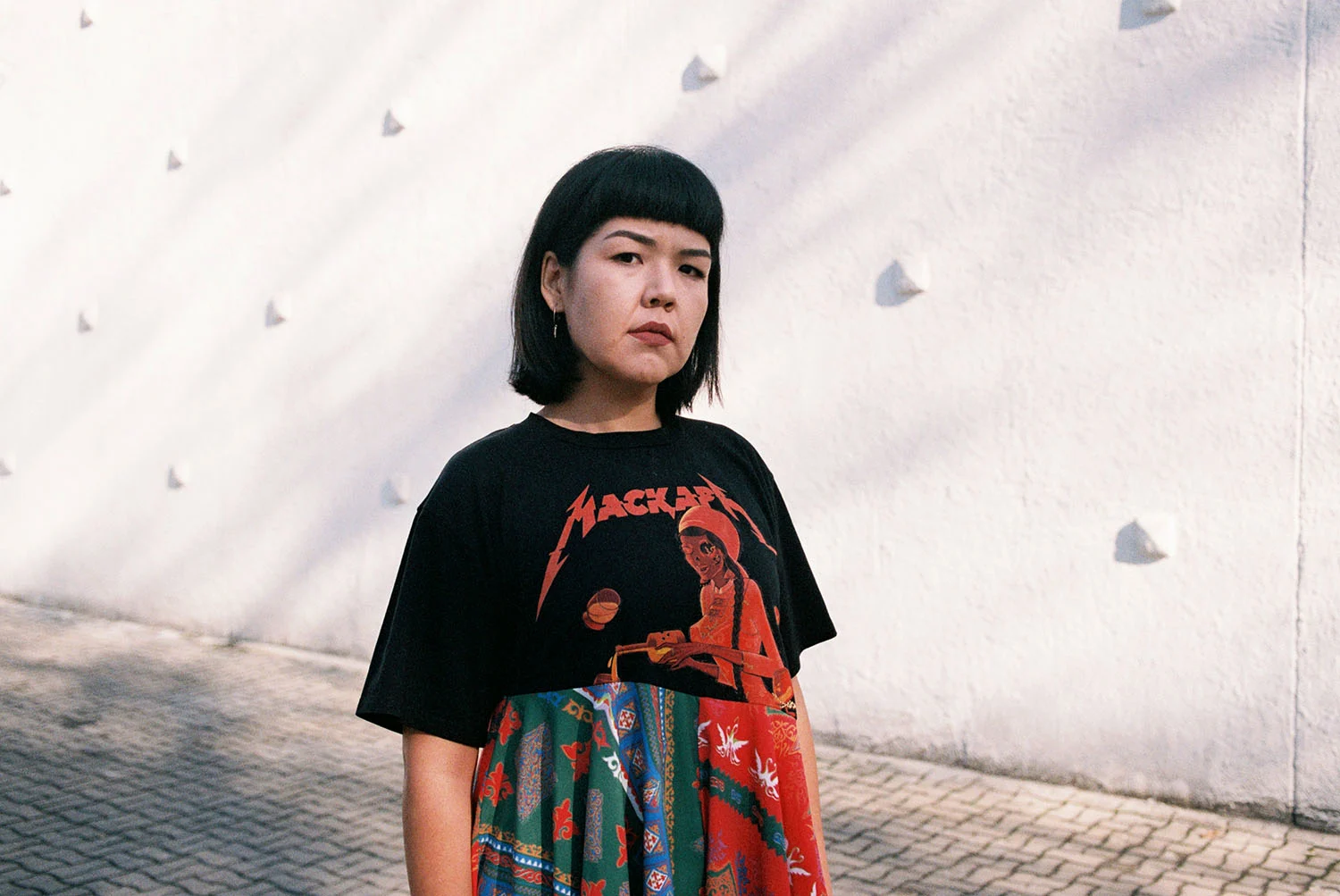
The journey from growing up in a small city in Southern Kazakhstan to being a DJ playing some of Europe’s most renowned venues could never be a simple one, could it? A lot has been written about Nazira Kassenova, but it’s not often that her remarkable journey is explored with such depth. Writer Shawn Reynaldo speaks to her about her life and career so far, from the quiet streets of Taraz to the rainy coast of Scotland to the infamous buzz of Berghain.
Photography by Yury Matsiyun.
Even as a kid, Nazira Kassenova was a dreamer. "I wanted to be an astronaut, then I wanted to become a scientist and treat cancer…at one point I wanted to become a politician," she says. "I was always dreaming of doing something big." Being a DJ was never on the list in those days, but Nazira's fearless ambition has nonetheless served her well; between her groundbreaking ZVUK parties and her regular presence on the international club circuit, she's become arguably the most prominent electronic music figure to have ever emerged from her native Kazakhstan.
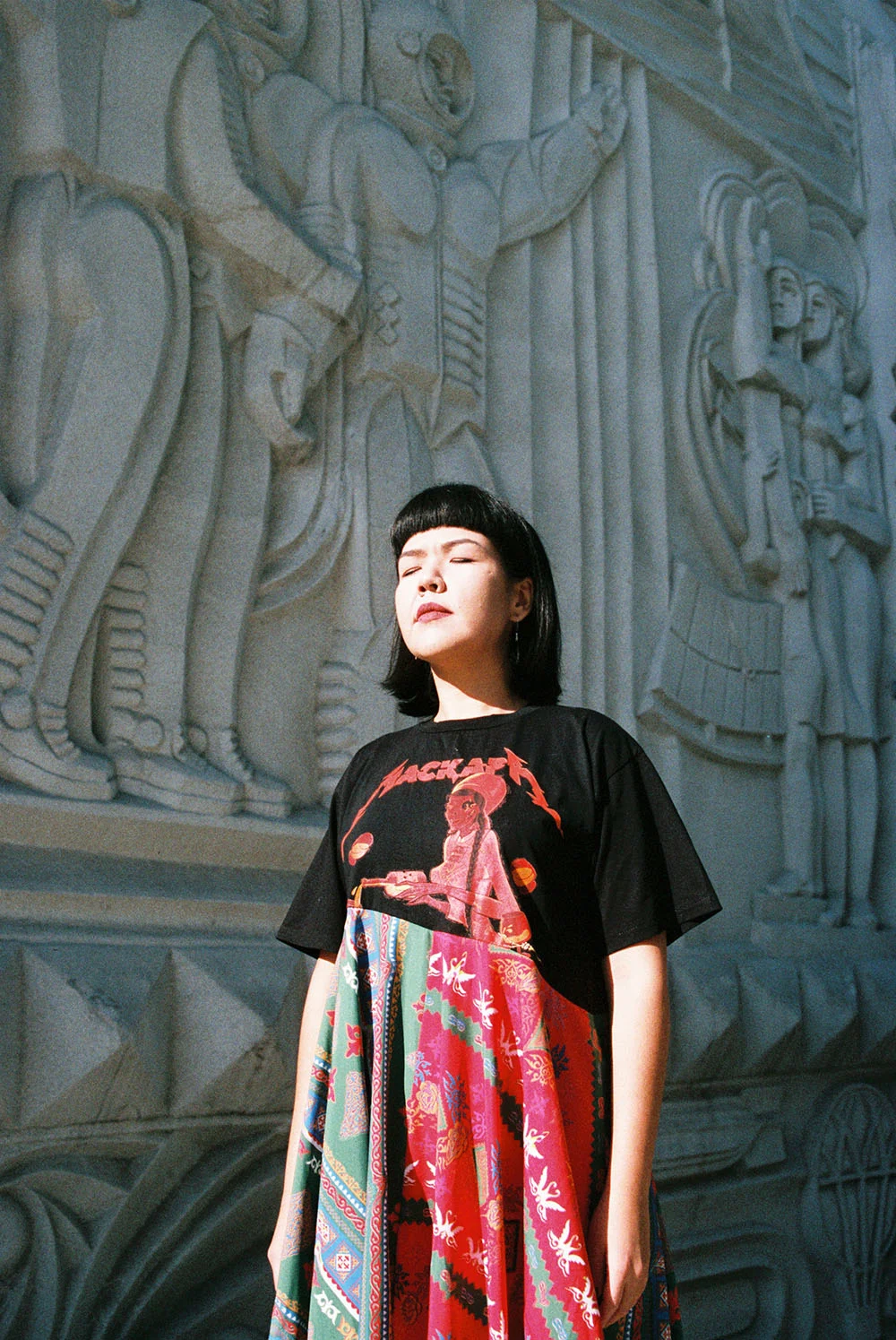
This path was anything but preordained. Although she now makes her home in Almaty, Kazakhstan's largest and most culturally vibrant city, Nazira grew up in Taraz, a smaller city in the southern part of the country. During the Soviet era, it was an industrial hub, but according to Nazira, it’s now a place "where not a lot happens." Born in 1991 – the same year that Kazakhstan left the Soviet Union and became an independent state – she doesn't remember her childhood as a particularly optimistic time for the country. "People were shocked, especially because the economic situation was really difficult," she explains. "There was inflation and then it was just chaos. People were completely lost."
As industry dried up and economic instability set in, things like music and the arts weren’t much of a priority. "People were struggling so much so that they didn't care about culture," says Nazira. "That was what we were taught since childhood." Things like "personal development" weren't even part of the conversation; Nazira's parents expected her to study and go to university. She took the lesson to heart, becoming a self-described "total geek" and straight-A student.
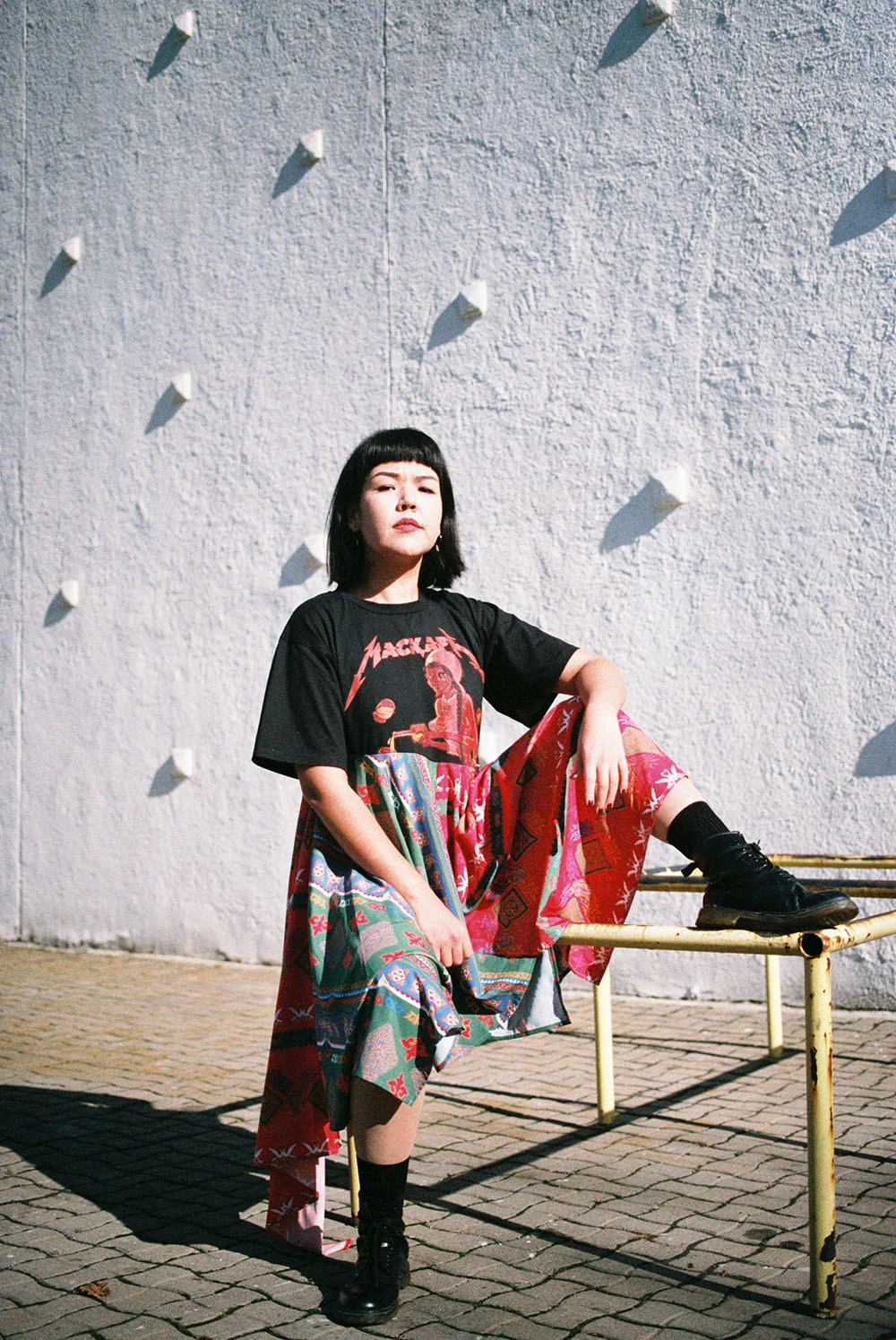

Outside of her studies though, Nazira was still a creative dreamer; music was one of her passions, but her options were often limited to mainstream pop and some classical. Like many teenagers, she went through various phases, trying on rock and hip-hop fandom, but found few truly useful signposts to guide her along the way. Outside of television, radio and the occasional local concert, her only source for music was swapping cassettes and CDs with friends, who were generally restricted by the same conditions Nazira herself was facing. Even the internet was largely out of reach; regular web access came late to Taraz, so it wasn't until high school that she was able to start going online.
Given that, Nazira freely admits that despite her curiosity and enthusiasm, she "didn't even know about the existence of certain music. For example, electronic music, I didn't know." However, that slowly began to change once she entered university; her first year of study was in Almaty, a place that, while still limited by Western standards, nonetheless had clubs, concerts, museums and, most importantly, people with similar interests. Back in Taraz, she had often felt alone, but in Almaty she got her first taste of creative community, along with an introduction to electronic music, oddly enough via a friend who was involved in competitive turntablism. In retrospect, that scene was light years away from the techno-oriented space she now inhabits, but its effect on her was immediate. "It really touched me inside," she remembers. "I just really vibed with it. I wanted to explore it more."

Nazira got her chance the following year, thanks to a prestigious biotechnology scholarship that granted her the chance to study in the UK. This was more than just a chance to go abroad and expand her horizons, it was also economic opportunity. Although Nazira had always loved science, she also knew that biotechnology was a field which potentially offered the sort of economic stability her parents had been talking about her whole life. And on a more basic level, she was also motivated by the simple need to get her tuition paid for, as her parents had struggled to even get the money together for her first year of university in Almaty.
Scholarship in hand, Nazira wound up studying molecular biology at the University of St. Andrews in Scotland, an esteemed institution located in a small seaside town on the country's eastern coast. Arriving there led to something of a shock. Nazira had never really been abroad before, save for a couple of trips to neighboring Kyrgyzstan, and even the local accent was a challenge. "People there speak so weird," she says with a laugh. "I didn't understand what people were talking about. So yeah, it was very funny, but I really liked it from the beginning." Once she settled in, she also realized that her access to electronic music had exponentially increased, and dove in head first. "I was searching for it," she says. "It wasn't something that just happened."

St. Andrews didn't offer any world-class clubbing experiences—the first event she went to involved local DJs playing inside a boat house, and most parties were small affairs that took place at pubs or random flats—but Nazira was hooked. "It was so much more than the music," she says. Dancing with friends and strangers alike, she saw how electronic music could inspire a sense of togetherness, unity and freedom; there was a real power to DJing, and she wanted to be a part of it. "From the beginning," she says, "I wanted to play music."
However, Nazira didn't feel like she was necessarily welcome to join DJ ranks. "DJs looked so intimidating," she remembers. "They were just behind the decks, doing their thing and everyone was losing their shit. Especially in my town, some DJs I knew, they were cool kids. They cared about music, but really they just wanted to be cool."
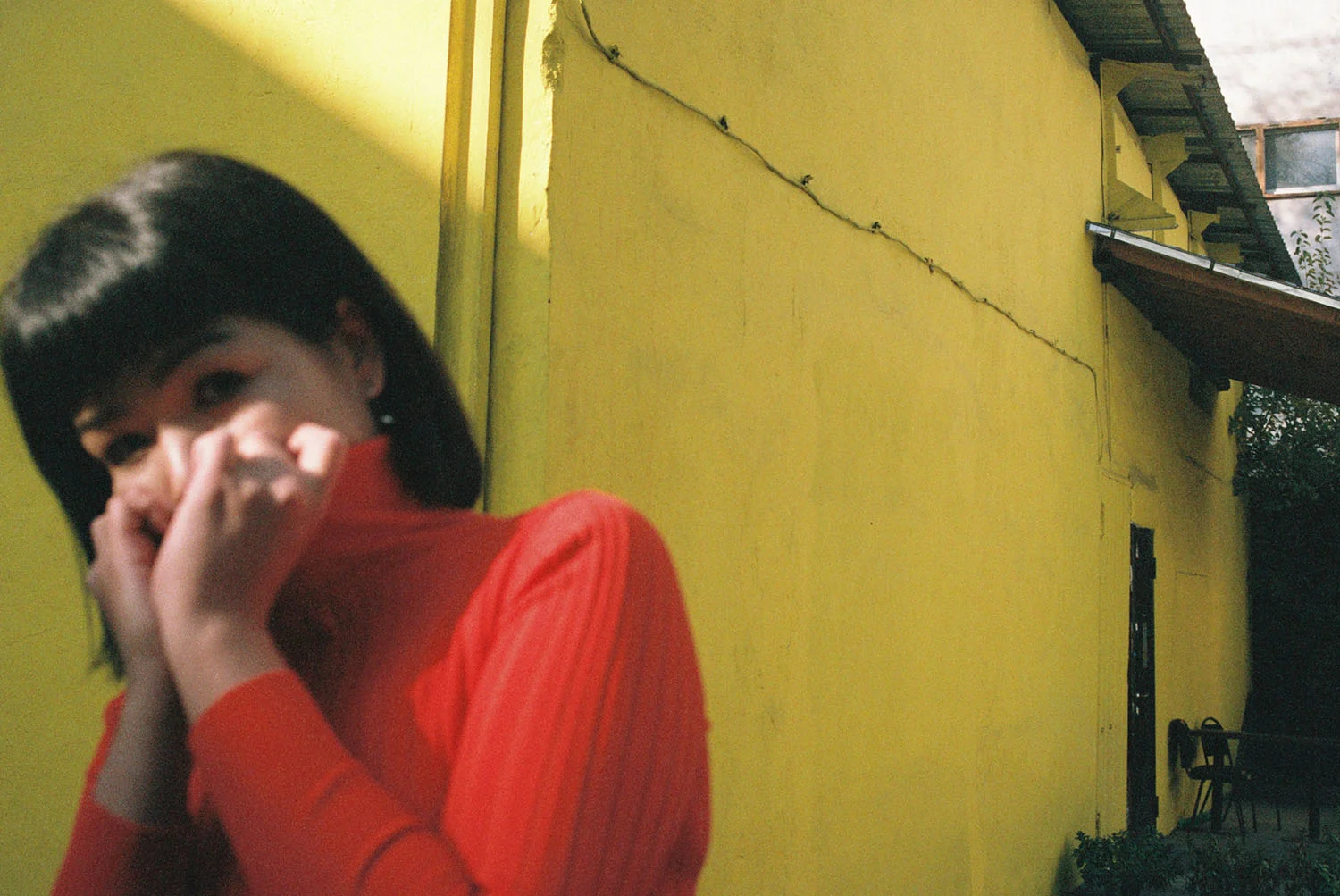
So instead of DJing, Nazira got involved in other ways. As her time at St. Andrews wore on, she increasingly spent her weekends traveling to parties in Glasgow, Edinburgh and even London. She also took action locally. "I actually did an electronic music course at my university," she says. "It was just one semester. And yeah, I had to drop it halfway through because it was clashing with chemistry." Outside of the classroom, she also began writing about electronic music, initially contributing to a campus arts magazine called Start, and later launching a music magazine with a friend. "Clearly we had no idea what we were doing," she says, but that didn't dampen their enthusiasm; operating under the name Press Play, they published reviews, artist interviews, and a variety of features, garnering some local notoriety in the process. She also started throwing off-campus events, helping to organize a music festival in St. Andrews called Under Canvas.
After completing her studies, however, the time came to go back to Kazakhstan. Staying in Europe wasn't an option, as returning to work in Kazakhstan was one of the conditions of her scholarship and Nazira once again found herself in Almaty. The transition wasn't easy. "I had changed and I had all these new influences, but Kazakh people in general, they're quite conservative," she says. "I like new experiences. I want to experience things, but a lot of Kazakhs stay in their groups, and in their minds, there are right and wrong things. And techno parties, for example, those are wrong things. The mentality of people is just so different."
At the same time, she knew that Almaty had potential. Although it didn't compare with places like London or Berlin, it had some level of culture, music and fashion, along with young people who she knew were eager to break free of their conservative parents' expectations and build something new. "I just wanted to do something," says Nazira. "I wanted at least one place where I could go and dance, because there were no places like that." In 2016, working completely on her own, she threw her first party in an old World War II bunker; she called it ZVUK, which means "sound" in Russian.
"The electronic music scene was very elitist and it was all about everything but the music and the atmosphere," she explains. "I wanted to call it ZVUK because for me, only the sound is important, only who you are is important and only true things are important." That first event only drew about 100 people, but there was a definite vibe, and Nazira knew she was on to something. She continued throwing ZVUK parties every month, but the events were ultimately just one piece of the puzzle. Nazira knew that she needed to build a community from the ground up.
"For me, it was always important to build a culture, not just throw another party no one cares about," she says. "People didn't understand the concept of electronic music being something more than just your Friday night entertainment." Three years later, she's made undeniable progress. Almaty's scene is still small – "There are no record shops," says Nazira. "There are very few DJs and there are no real resources or publications centered around music” – but things are definitely growing. ZVUK is still going strong, and is now run by an entire team of enthusiastic contributors. In 2017, Almaty played host to a special edition of renowned Polish festival Unsound, and while ZVUK remains the city's key destination for more left field and experimental electronic sounds, other parties have sprung up with a focus on exploring other corners of the underground.
Nazira, meanwhile, has become a successful touring DJ, now spending approximately half of each year on the road. It certainly isn't something she anticipated, even just a few years ago, and while she's loving the experience, she also admits that following this path hasn't necessarily been easy. "When I chose to do DJing full time, you can't even imagine how many nervous breakdowns I had," she says. "It was like I was throwing away my whole life. And even inside me, because I grew up with this mentality of prioritizing stability and being told 'that is not the appropriate thing,' even I thought that I was doing something wrong."
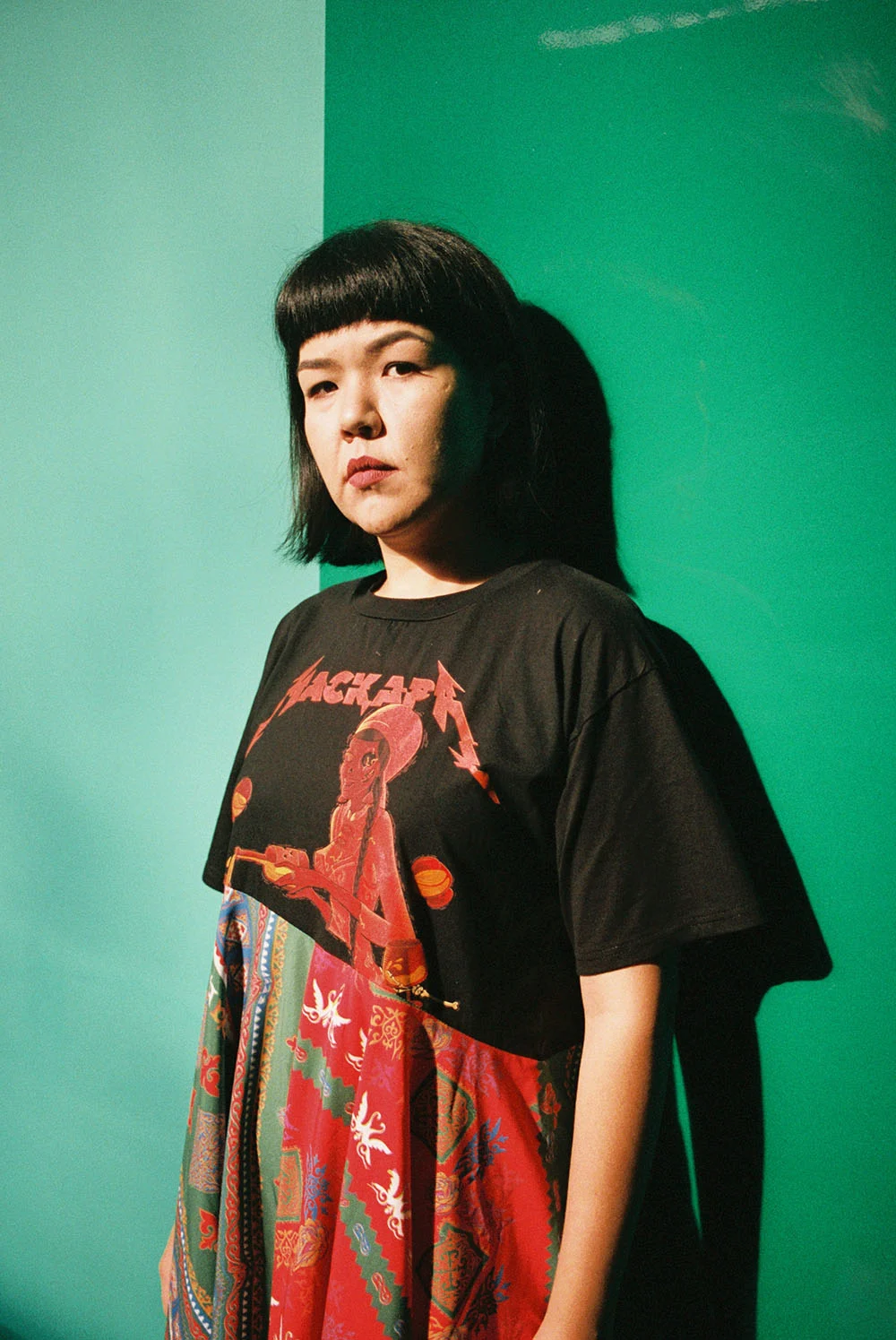
Her insecurities didn't stop there. Back when she first started getting booked outside of Kazakhstan and suddenly found herself on lineups with other artists she'd long admired, Nazira, like many DJs, suffered from a bit of imposter syndrome. As an artist coming from Kazakhstan, it was especially intense. "I always felt like an outsider," she says. "I just didn't feel that I was good enough, that I deserved to be there…but then at some point, I was like, 'Dude, you have to stop doing that. If you're playing, that means that you deserve to be there.'" These days, she's totally comfortable sharing the stage with established artists, while simultaneously being confident enough to know that it's her skill and artistry as a DJ that have kept her getting booked again and again.
"I would definitely call myself a techno DJ," she says, but Nazira also recognizes that she's coming into the electronic music world with a unique perspective, one that goes beyond her geographical origins. "Because I grew up not listening to electronic music that much," she says, "All of my influences were mixed together. Even when I was just going to parties, I wasn't like 'Yeah, I only listen to this,' or 'I only listen to that.' It was always a mixture." She's brought a similarly open mind to the DJ booth, so that even when she's playing in a renowned techno institution like Berghain in Berlin, she's unafraid to take extended detours into other genres. "I'm more about creating a mood, developing something and bridging things together that might not go together normally. For me, the most important part is to keep the groove going."


In a perfect world, Nazira could simply focus on DJing and further developing her craft, but she's come to realize that when she's abroad, another responsibility has been thrust upon her. She's become a sort of spokesperson, and not just for ZVUK or Almaty, but also for Kazakhstan and arguably even all of Central Asia. While most of her European and North American peers get to simply show up in a new city and play, Nazira is constantly being asked questions by promoters, fellow DJs and fans alike about where she comes from. Some artists might chafe at this kind of repetitive routine, but Nazira takes it in stride. "I can understand where people are coming from," she says, "because people don't know anything about Kazakhstan in general, let alone its youth and culture." So she answers people's questions, bigs up other Kazakh artists, and shares what she knows, both the good stuff and the bad. And though she sometimes worries that her penchant for speaking honestly might get her into trouble (things like freedom of speech and LGBT rights are far from guaranteed in Kazakhstan) Nazira is more than eager to keep forging connections between her homeland and the larger electronic music universe.
After all, she's still really excited about Almaty. Moving to Berlin or another European hub might make her life easier, but at least for now, she's planning to stay. Almaty is not just home; it's also one of her favorite places to play. "People here are very open and grateful," she says. "You just rarely feel this level of giving back from the crowd. They're super open, you can do whatever…audiences in Europe, they are definitely spoiled at this point because there are so many things happening in Berlin or anywhere, so they're often less enthusiastic. Here, they're really enthusiastic."

A similar sort of enthusiasm is also at the core of Nazira's own work. "I still don't earn money with my parties," she says. "I've always done it because I love it and it was coming from the heart. Everyone, all the parties in Almaty, no one does it for the money. You would never call it an industry." Perhaps that's why she also approaches her DJ career with such humility and gratitude; other DJs might complain about promoters providing the wrong mixer or not shelling out for speedy boarding, but Nazira is seemingly always smiling, even as she continues to regularly spend up to 15 hours traveling to/from Almaty for her gigs. "I'm a very chill DJ," she says. "I'm basically just happy to be there."
Looking to the future, Nazira is hopeful that other young scenes will have a similar chance to thrive. Although she's adamant that "you can't force things," she also believes that "diversity is always good. Every artist brings something new. When you only have European artists, there is a certain mindset everyone shares, and then it gets monotonous. When you have people from different backgrounds and from different cultures, they bring new ideas and they bring new fresh things. Maybe they play in a new way, or maybe they make music which is amazing and new. They bring a change."